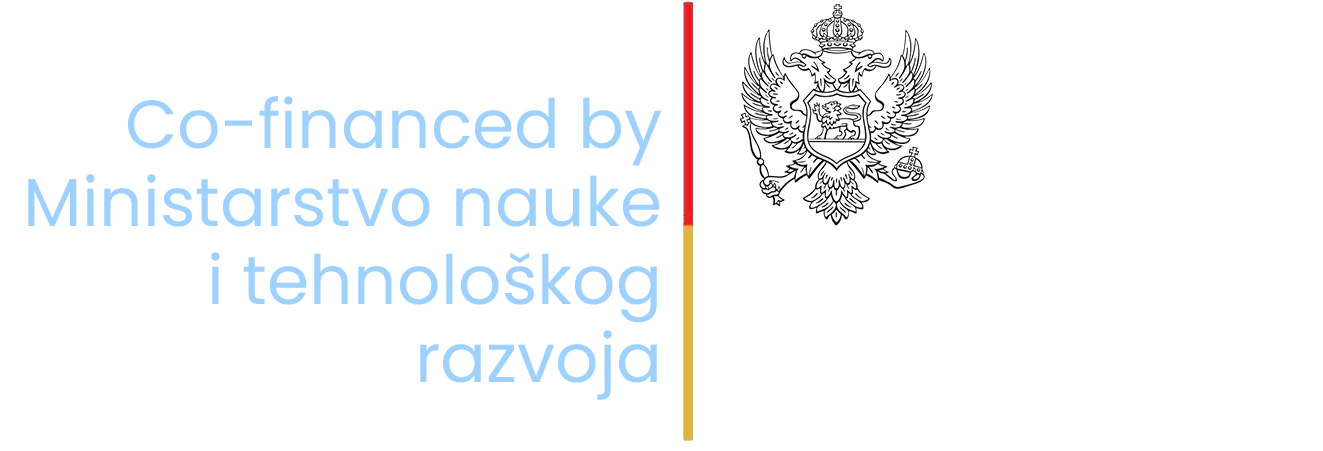
The official ceremony for the awarding of grants from the Regional Fund for Challenges was held on February 2, 2021, at the Chamber of Commerce of Montenegro. The ceremony brought together representatives of the Ministry of Education, Science, Culture and Sports, the Comoros Investment Forum, the German Embassy, KfW – the German Development Bank, and representatives of the award-winning consortia.
The Regional Challenge Fund (RCF) is a financial mechanism designed to improve the employability of young people. This project is financed by the German Federal Ministry for Economic Cooperation and Development (BMZ) through the German Development Bank (KfW). The main partner in the implementation of the project is the Chamber Investment Forum of the Western Balkans 6 (WB6CIF).
At the meeting, it was announced that after the first call for project proposals, RCF received 205 declarations of interest from consortia and institutions dealing with professional education and training, as well as companies from the Western Balkans region. Of the total number of applications, 29 came from Montenegro. Following the further work of the Selection Committee, a decision was made to propose the two most successful projects from Montenegro for financing and receive investments in infrastructure and equipment in institutions for professional education, as well as training and development of all those involved in the implementation of the cooperative education program. The funds will be invested in the total amount of EUR 937,249.
The consortium consisting of the High School of Electrical Engineering “Vaso Aligrudic” from Podgorica with partners Bild Studio, Alicorn, Data Design, Amplitudo, and Mont-inženjering received a grant of 511,509 thousand euros, while the consortium of the High School “Danilo Kiš” from Budva with partners Hotelska Grupa Montenegro Stars, Budva, Gospoština Lux, Budva, and Spencer & Hill Team, Bečići awarded a grant for 425,740 thousand euros.
The ceremony was attended by Dr. Nina Drakić, President of the Chamber of Commerce of Montenegro, Robert Heinrich Weber, Ambassador of the Federal Republic of Germany in Montenegro, Marija Lalatović, Director of the Directorate for General Secondary Education, Vocational Education and Adult Education, Ministry of Education, Science, Culture and Sports, Željko Uljarević, Director of KfW German Development Bank, Office in Montenegro. The meeting was moderated by Balša Ćulafić, project coordinator for the RCF on behalf of the Chamber of Commerce Investment Forum and coordinator for cooperation with international organizations in the Chamber of Commerce.
The President of the Chamber of Commerce, Dr. Nina Drakić, pointed out that this project of the Regional Fund for Challenges is important for Montenegro and neighboring countries because it offers the necessary new knowledge, new personnel energy, that is, qualified employees and executors for our economy to be competitive.
– An economy that develops under the influence of new technologies and market demands also implies an educational system that is constantly improved and adapted to the needs of the times. Digitization, automation, artificial intelligence, and other consumer demands will continue to demand and impose new qualifications of professional knowledge and education – said Drakić.
According to her, the received grants will improve the work of eight economic entities and two educational institutions from Montenegro, and it is encouraging that even smaller companies are interested in improving personnel capacities and cooperation with educational institutions.
She invited companies and educational institutions to apply in the following calls and announced that they will begin activities to announce a new one at the end of the month.
German Ambassador Robert Heinrich Weber congratulated the consortiums from Montenegro that received grants for projects from the Regional Fund for Challenges.
According to him, the promotion of employment and nurturing of professional education is the main focus in the activities carried out by KFW in recent years, and a very important topic when talking about the cooperation between Montenegro and Germany.
– We know that cooperation between vocational schools and the private sector is necessary and extremely important. This is a way to finance and connect regional training centers and the private sector to develop programs that match the needs of the economy. A well-trained workforce is a key to sustainable economic growth and long-term survival of the market – said Weber.
He points out that Germany wants to support Montenegro on its European path, and that we should be proud that the implementation of this project will provide a strong contribution to the competitiveness of Montenegrin companies on the common market of the European Union.
Marija Lalatović, Director of the Directorate for General Secondary Education, Vocational Education and Adult Education of the Ministry of Education, Science, Culture and Sports, said that only through the cooperation of partners from the world of education and work, the vocational education system can follow the needs of the economy and the individual to he managed as well as possible on the labor market.
She said that the results of this project will contribute to the further development of professional education, the improvement of knowledge and skills in priority sectors, greater employment of young people, and the creation of new jobs, as well as greater participation in lifelong learning.


